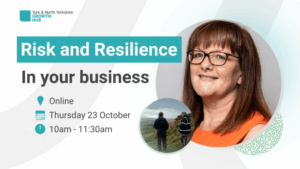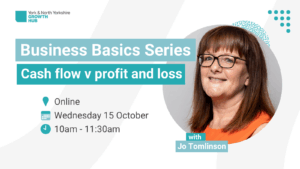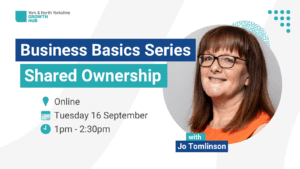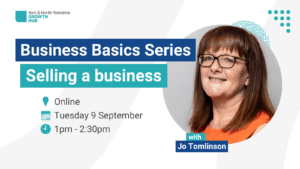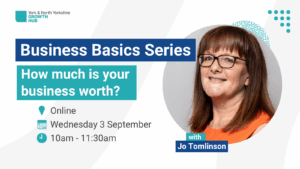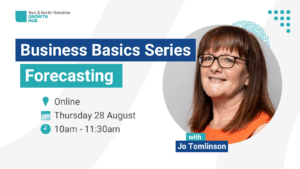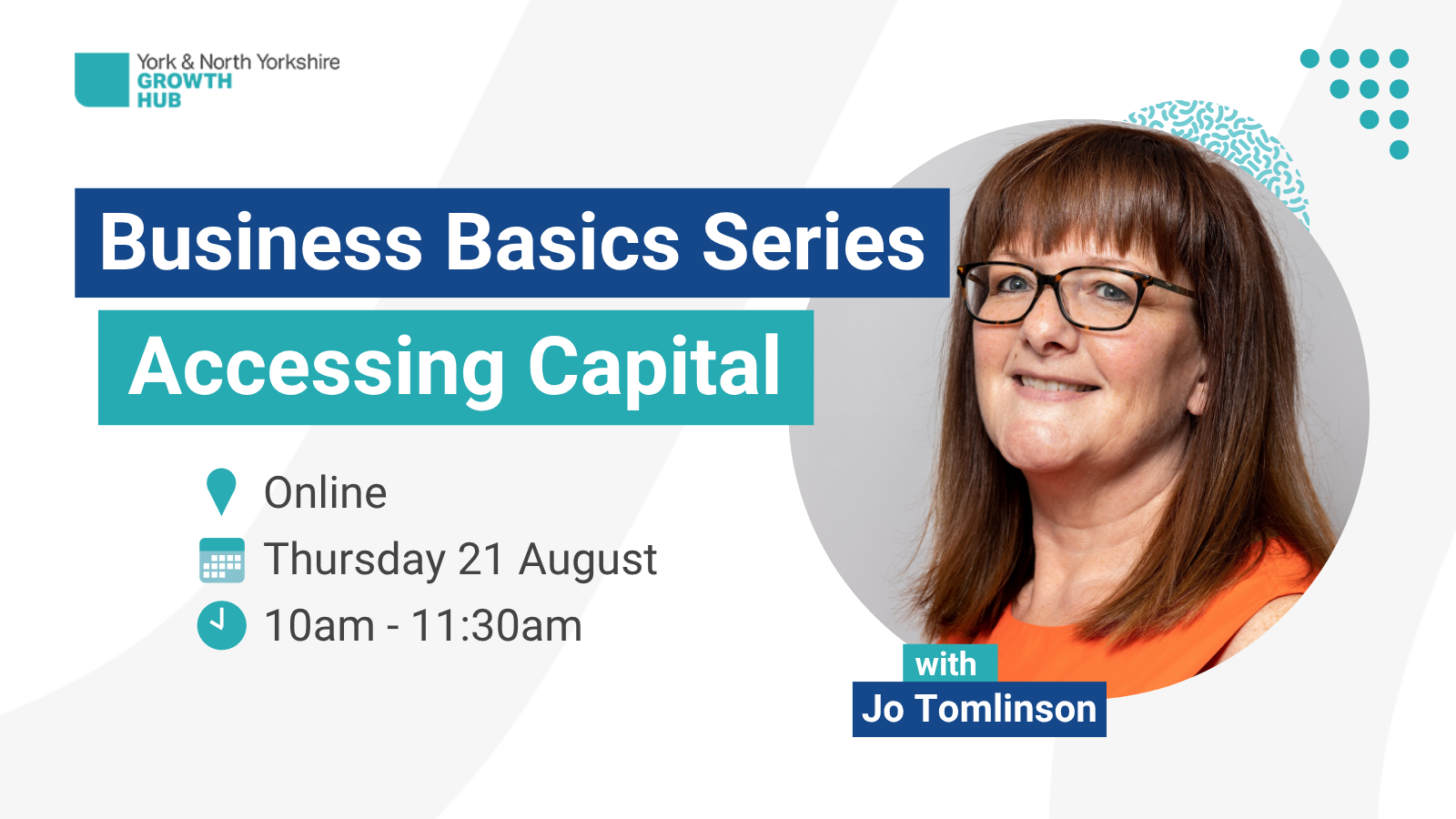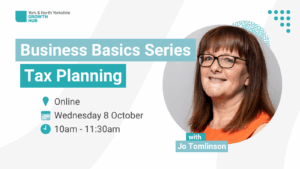
Do you need a business mentor?
For many of us, starting a new business is a radical act of independence – the idea of finally being free of a boss and only answering to yourself. Making your own decisions. Doing things your way. So, asking for help from a business mentor – i.e., taking direction from someone else – might seem like the opposite of what you set out to do in the first place. But don’t write off the idea of seeking out a mentor just yet!
After all, if freedom wasn’t the main reason for starting out on your own, it’s likely because you have a passion for the service your new company will be providing, rather than a desire to dive headfirst into day-to-day business admin.
Business coaches and mentors have done it all before
A business coach or mentor has been there and done that, again and again. As well as the basic nuts and bolts of running a business, they know what makes a company succeed or fail – most likely because they’ve been involved in both at some stage in their career.
This insight is invaluable. There’s so much to cover when you’re starting a business, and there’s no shame in admitting that there often turns out to be far more involved than you ever imagined.
Whether it’s tightening up your business plan, jumping through the hoops of tax and insurance, or even ordering your pens, they’ll probably have a suggestion. They’ll ask the right questions to uncover the things you haven’t thought of, and help you push yourself to make your business the best success it can be.
Business mentors let you focus on what’s important to you
As the boss, it’s easy to get so wrapped up in the day-to-day work of running your business that you find yourself with less time to make things, less time to spend with clients or customers, or less time to go out on jobs – whatever it is that you love about what you do.
Although a business coach isn’t just going to do it for you, their expertise and advice will make the whole process so much quicker and easier. When you think about it, it’s all about division of labour – let them help you with the things they know best, so you can focus on what you know best.
Business mentors offer an outside perspective
You understand what your business does and what your products are. But is it obvious to the rest of the world?
It’s incredibly easy to get wrapped up in a new business and lose sight of how it can be perceived from the outside. A mentor can offer that perspective, helping you see your company through the eyes of a customer, client, or even an investor.
A business coach and mentor can provide mediation and solve disputes
Ok, so maybe you’re not alone. You’re starting your business with a partner who’s going to handle the admin side and provide a sounding board for all of your ideas. They always think of the things you don’t, and that’s why you’re an awesome team.
So, what happens when you disagree? Just get on with it in a glowering silence? Fracture into two rival companies? Pursue ever-escalating legal action?None of these are healthy.
Mediating and solving disputes between business partners is perhaps one of the small business mentor’s most important jobs at first. Hearing both sides and offering an alternative view backed up by experience can smooth over disagreements before they blow up into something more..
A business mentor can provide personal support for business owners
Starting a business is hard work! There are times when it can take over your life, and your friends just aren’t going to want to hear about it anymore.
Having someone you can talk to about the personal side of running a business can be just as important as the admin, tax and HR side of things. A good business mentor will be able to lend an ear and offer emotional support – the pep talks you need to keep going, the tough talks you need when you’re losing motivation, and everything in between.
Business mentors provide networking opportunities
After years in the game, a business mentor is going to have a huge number of contacts. They might be valuable suppliers with great prices. They might be people who need the exact service you provide. They might be the host of a weekly networking session with excellent free coffee and a huge community of potential customers.
Many of these contacts and recommendations are likely to be a mentor’s former mentees – you’ll be on that list in future too. You never know what it might bring your way. Speaking of which…
You never know what’s going to come your way
Running a business can be unpredictable. You never know when a global pandemic or political upheaval is going to strike. You never know when you’re going to upset a client for the first time and find yourself staring at a lawyer’s letterhead. The knowledge that you have someone there to help when times become tough can be one of the most comforting things for a business owner.
And, even if you decide you don’t need a mentor right now, changing your mind when the unexpected does happen shouldn’t be something to be ashamed of. It’s a proactive step that you’re taking to protect and grow your business – whenever you decide to take it.
So, how do you choose a business mentor?
First and foremost, you need a business mentor or coach that you can get on with on a personal level, and that has your interests at heart. Someone who won’t shy away from the tough talk, of course, but is almost as passionate about your business as you are (at least!).
But beyond that personal connection, make sure you do your due diligence.
Understand their niche
There are a lot of different kinds of business coaches or mentors out there, all with different specialisms. These may be focused on a specific industry, a specific business size, or a specific business goal.
For example, some mentors will specialise in starting a business, while a business growth consultant will be focused on helping you grow – often with an eye on selling on your business within a certain number of years.
Make sure you find out (or just ask!) what their specialisms are and what they know about your industry.
Check their credentials
You should also be sure to investigate who they’ve worked with before. You’d hope there’d be more successful businesses in their portfolio than less-than-successful ones after all!
Many business mentors operate as businesses themselves so have a look at their reviews. They might have a website with testimonials and case studies, or social media pages with feedback – and, of course, there’s Google reviews to explore!
Be sure to cast a further net, too. Have they published any books or articles that can help you get to know what they’re about, for example?
Watch out for bad apples
A portfolio of failures or a list of bad reviews aren’t the only red flags. As with any kind of coaching, you will find people out to make a quick buck.
Keep an eye out for people who charge a lot of money up front – particularly if they’re trying to sell you guides or courses rather than their one-to-one time. If they’re targeting new business owners with high-pressure tactics, they should be avoided.
Seek out free support
There are a lot of business coaches and mentors out there who are willing to offer their time for free. For example, you could talk to a York & North Yorkshire Growth Hub mentor to see how we can help – if our Business Relationship Managers can’t offer you the exact support you need, there’s a good chance they’ll have a great contact that they can introduce you to.
Take a moment to find out more about how we can help – or if you’re ready to get started, drop us a message with a bit of information about you and your business!
Autumn Budget 2025 – How will it impact your business?
The Autumn Budget, announced on 26 November 2025, introduced a range of changes that business owners need to be aware of. From updates to taxation and compliance rules, to adjustments in incentives and support schemes.
Risk and Resilience in Your Business
Running a business can be risky. There are so many things that can impact your performance, and profit. Potentially destroying all that you worked so hard to build. Some of these things are impossible to plan for, but lots of potential risks can be mitigated by identification and planning.
Business Basics – Cash Flow v Profit
Many small business owners can get confused when looking at numbers relating to their business, and often this is due to cash and profit being understood as one and the same thing. It is crucial to understand the difference between these two metrics so that decision making is not flawed.
Business Basics – Project Evaluation
Projects can be anything from taking on a new person, or launching a new product, to building a manufacturing site, or acquiring a business to merge with the current one. How you evaluate each project can vary depending on size and complexity. But undertaking the exercise leads to better decision making and control.
Building Resilience and Sustainability into your Farming Business
Resilience and sustainability lie at the heart of modern farm business strategies, ensuring that agricultural enterprises can withstand economic shocks, adapt to evolving environmental regulations, and maintain profitability amid climate volatility. By embedding sustainable practices, ranging from energy efficiency to regenerative soil management, farmers not only safeguard their livelihoods but also contribute to broader goals of food security and environmental stewardship.
Business Basics – Shared Ownership
Directors and shareholders of UK companies have many rights and responsibilities, but how do these change when you are one of a number of shareholders in a company?
Business Basics – Selling a Business or Shares in a Business
Being aware of your business's value enables you to determine a fair selling price for some or all of your shares and negotiate efficiently with prospective buyers. But where do you find a buyer for your shares, and what happens now?
Business Basics – How much is your Business Worth
Being aware of your business's value enables you to determine a fair selling price for some or all of your shares, negotiate efficiently with prospective buyers, and secure beneficial financing deals, among other advantages.
Business Basics - Forecasting
Although we don’t have a crystal ball, so forecasts are fundamentally informed guesses, businesses need to use them to make informed business decisions and develop business strategies.
Business Basics – Accessing Capital for Growth
Gaining access to outside investment means you don’t have to give up on your dream. So how do you prove to any potential investor that your business model is worth
Farm Diversification: Where to start
According to DEFRA, 71% of farm businesses in 2023/24 have some form of diversified activity, up from 61% in 2014/15. Income from these activities produced £1.393 billion in 23/24, up from £1.321 in the previous year. This demonstrates how important these income streams have become.
Business Basics – Making Tax Digital
Making Tax Digital (MTD) for Income Tax and Rental Income is the biggest change to Self-Assessment since it was launched by HMRC over 30 years ago.
Young Entrepreneur Guide
Do you have a business idea? Or do you want to work for yourself? Then the Young Entrepreneur Guide is here to help you!


